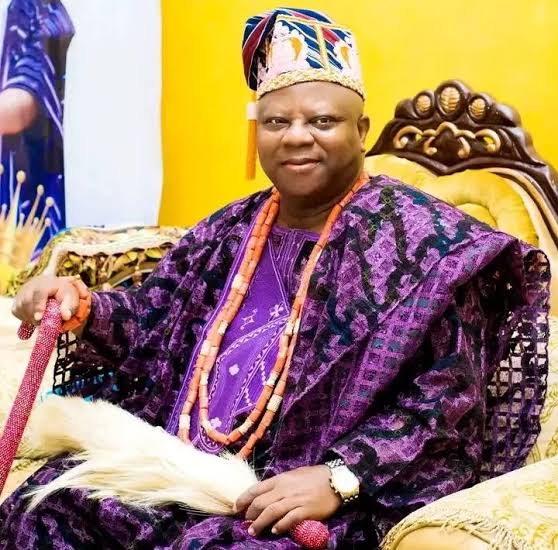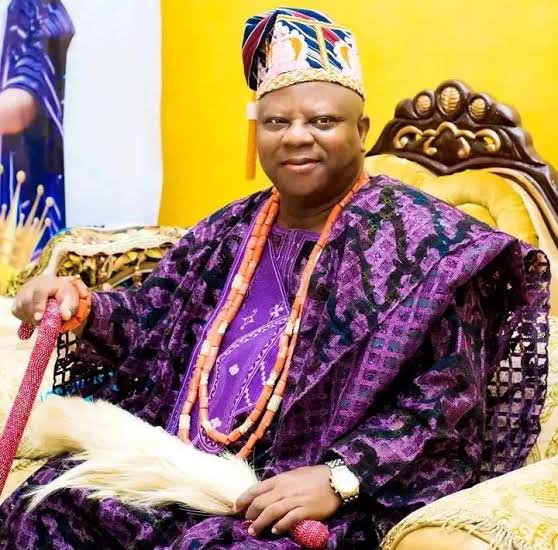Across the centuries, the story of kings has rarely been told in straight lines. In the Yoruba heartland, where crowns carry both divine sanction and political weight, monarchs have risen as symbols of continuity, guardians of tradition, and custodians of community dignity.
- The Making of a Monarch: Joseph Olugbenga Oloyede’s Early Life and Rise
- The Throne and the Temptation: The Allure of Power
- The Fraud Scheme: A Modern Scandal Across Continents
- Echoes of History: Monarchs and Trials of Power
- The Burden of the Crown in Modern Times
- Monarchs in Exile, Monarchs in Chains: Historical Parallels
- The Global Stage and Yoruba Kingship
- The Ancient Cycle: Rise, Trial, Redemption
- Reflections and Lessons
- Conclusion
Yet history shows that the same crown which elevates a ruler can also become the very burden that leads to disgrace. From the shifting tides of colonial conquest to the upheavals of military rule, Yoruba monarchs have faced trials that tested not only their authority but also the meaning of kingship itself.
It is within this long arc of triumph and trial that the fate of a modern Osun monarch, Oba Joseph Oloyede, must be placed. His story does not emerge as an isolated fall from grace, but rather as part of an older, recurring cycle that has shadowed thrones for generations.
To understand what unfolded in the twenty-first century, one must first look back—into the annals where crowns glittered under palace roofs, only to dim under exile, scandal, or public trial.
The Making of a Monarch: Joseph Olugbenga Oloyede’s Early Life and Rise

Born and raised in Ipetumodu, Joseph Olugbenga Oloyede’s life was steeped in the rhythms and rituals of Yoruba society. From childhood, he displayed an intellectual curiosity that would later distinguish him in both Nigeria and abroad. His early education in local schools was marked by excellence, a trait his parents nurtured with careful attention.
Oloyede’s pursuit of higher education led him to The Polytechnic, Ibadan, where he earned a National Diploma in Accountancy. Unlike many of his peers, he combined his academic ambitions with practical business experience, laying a foundation that would later serve him in both consultancy and leadership roles. His education did not stop there; he traveled to the United States to study further, earning an MBA from the University of Sarasota, Florida, and later a Doctorate in Business Administration from Argosy University, Sarasota.
This international exposure positioned Oloyede as a cosmopolitan figure—a monarch who could navigate both the cultural expectations of his Yoruba heritage and the technical demands of modern business.
When he ascended the throne of Ipetumodu in 2019, many saw in him a new era of leadership: educated, globally aware, and capable of blending tradition with modernity.
The Throne and the Temptation: The Allure of Power
The role of a Yoruba monarch is as complex as it is ceremonial. The Oba is not merely a figurehead; he is custodian of customs, arbiter of disputes, and symbol of moral rectitude. Yet, the throne also brings with it the allure of influence, the access to networks of power, and, for some, the temptation to blur ethical lines.
For Oloyede, his dual identity as a monarch and a businessman created opportunities—and vulnerabilities. In a society where traditional rulers often engage in business ventures, the boundaries between public duty and private gain can become perilously thin.
The seeds of his eventual downfall were sown not in the palace halls of Ipetumodu but in the labyrinthine corridors of global finance, where ambition and temptation intersected.
The Fraud Scheme: A Modern Scandal Across Continents
In April 2024, the trajectory of Oba Oloyede’s life changed irreversibly. Alongside Nigerian pastor Edward Oluwasanmi, he was arrested in Medina, Ohio, for orchestrating a multimillion-dollar COVID-19 relief fraud scheme. The duo had exploited the U.S. government’s Paycheck Protection Program (PPP) and Economic Injury Disaster Loan (EIDL) schemes, submitting fraudulent applications through six companies they controlled.
Investigators would later confirm that Oloyede personally oversaw 38 applications, securing more than $4.2 million in federal loans and advances. The scheme, meticulously crafted, involved falsifying documents, inflating employee counts, and misrepresenting revenue streams—acts that not only defrauded the U.S. government but also violated the trust inherent in his position as a community leader.
In February 2025, Oloyede pleaded guilty to charges of wire fraud and tax fraud. By August 26, 2025, U.S. District Judge Christopher A. Boyko sentenced him to 56 months in federal prison, three years of supervised release, and ordered restitution of $4,408,543.38. Additionally, Oloyede forfeited his Medina residence and $96,006.89 derived from the fraudulent scheme.

This case, extraordinary in its international scope, underscores how global financial systems and emergency relief programs can intersect with local leadership in unexpected ways. It also raises profound questions about ethics, accountability, and the enduring vulnerabilities of those in power.
Echoes of History: Monarchs and Trials of Power
The Osun monarch’s disgrace is not an isolated anomaly. History is replete with moments when monarchs—both Yoruba and beyond—faced humiliation or downfall. In fact, the Yoruba historical experience reveals a cyclical rhythm of exaltation and trial.
Colonial Subjugation (1890s–1930s): British administrators weakened Yoruba thrones, deposing monarchs who resisted indirect rule. Kings were at times humiliated, stripped of authority, and forced into exile.
Postcolonial Conflicts (1960s–1980s): Military governments often suspended or dethroned traditional rulers who opposed them. Monarchs who aligned with political powers survived, but those who resisted often fell.
Modern Scandals (1990s–2020s): From land disputes to fraud allegations, monarchs increasingly found their authority challenged in open court, no longer shielded by sacred immunity.
Thus, Oloyede’s imprisonment is a contemporary reflection of a cycle long embedded in the historical consciousness of Yoruba kingship—when rulers fall, they fall hard, and their trials are woven into the cultural memory of the people.
The Burden of the Crown in Modern Times
The Yoruba crown, once guarded as a purely sacred institution, now exists in a world where monarchs face the pressures of money, politics, and international scrutiny. Unlike in precolonial centuries, where an Oba’s downfall was contained within the city-state, today’s monarchs operate in a global village where their errors travel across oceans.
This raises profound questions:
- How do monarchs navigate a role that is at once spiritual and political, yet vulnerable to personal missteps?
- What does it mean when a king, seen as divine custodian, is judged as a criminal in a foreign court?
The Osun case demonstrates that monarchs no longer stand outside global justice. Their crowns may protect them within their towns, but beyond Nigeria’s borders, they stand as individuals before the law.
Monarchs in Exile, Monarchs in Chains: Historical Parallels
History offers striking parallels:
- In the 19th century, Oba Kosoko of Lagos was exiled by the British after clashing with colonial authorities. His forced departure was seen as humiliation for his people.
- In the 20th century, monarchs who challenged military regimes were sometimes detained, harassed, or sidelined.
- Even outside Nigeria, African monarchs such as King Prempeh I of Asante (Ghana) and Kabaka Mutesa II of Buganda (Uganda) suffered exile or political disgrace.
The Osun monarch’s fate aligns with this older tradition of rulers caught in the storm of forces beyond their control—or in this case, their own choices colliding with the unforgiving machinery of U.S. justice.
The Global Stage and Yoruba Kingship
The trial also raises questions about the globalization of Yoruba kingship. Monarchs are no longer confined to their palaces; they travel abroad, engage diasporas, and in some cases, conduct businesses that span continents. But with global reach comes global accountability.
The Osun case demonstrates how the sacred stool, once immune from foreign interference, is now subject to global law enforcement. The balance between cultural sanctity and modern legality has never been more tested.
The Ancient Cycle: Rise, Trial, Redemption
Yoruba history is cyclical. Stories of great kings often end with trials—some overcome, others destroyed. The Osun monarch’s downfall fits into this ancient rhythm:
Rise: A king is enthroned with pomp, hailed as custodian of ancestors.
Trial: He faces temptation—whether from colonial power, political rivalry, or personal ambition.
Fall: His choices lead to disgrace or downfall.
Redemption or Replacement: The people either restore him, or a new king rises.
This cycle ensures that no monarch is greater than the stool itself. The king may fall, but the crown endures.
Reflections and Lessons
From the palaces of Ipetumodu to the federal courtrooms of Ohio, the story of Oba Joseph Olugbenga Oloyede is a testament to the enduring cycle of rise, fall, and trial. It is a narrative that resonates across centuries of Nigerian history, reminding us that leadership is as much about moral integrity as it is about ceremony or achievement.
The Apetu’s incarceration is a modern echo of ancient patterns—leaders who soar on the wings of ambition, only to be humbled by their decisions. Yet, this cycle also offers hope: societies learn, adapt, and reinforce the norms that protect communities and hold leaders accountable.
As Nigeria reflects on this extraordinary case, it prompts a broader conversation about leadership, tradition, and the values that sustain both. The palace may stand empty for a time, but the lessons endure, weaving into the moral fabric of the community—a reminder that power is both a privilege and a profound responsibility.
Conclusion
Oba Joseph Olugbenga Oloyede’s journey from the throne of Ipetumodu to a U.S. federal prison encapsulates a profound lesson: history repeats itself, especially when ethical boundaries are blurred. This case underscores the necessity of integrity, the vulnerability of even the most revered figures, and the enduring cycle of rise, fall, and trial that shapes Nigerian society.
The story is not merely about one man’s failings—it is about the intersection of tradition, modernity, and accountability. It challenges communities to reflect, adapt, and uphold the principles that allow leadership to remain both honorable and effective.
In the end, the Apetu’s fall serves as a cautionary tale for leaders everywhere, a reminder that crowns, no matter how resplendent, cannot shield one from the consequences of actions.













